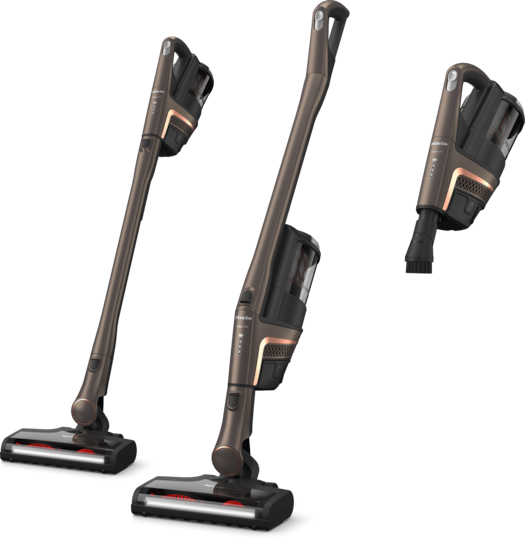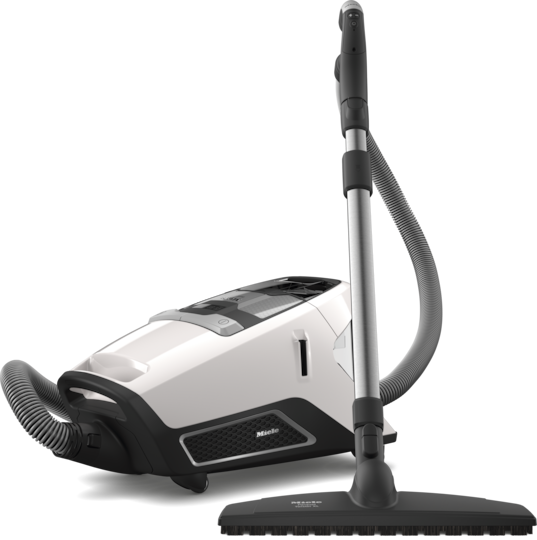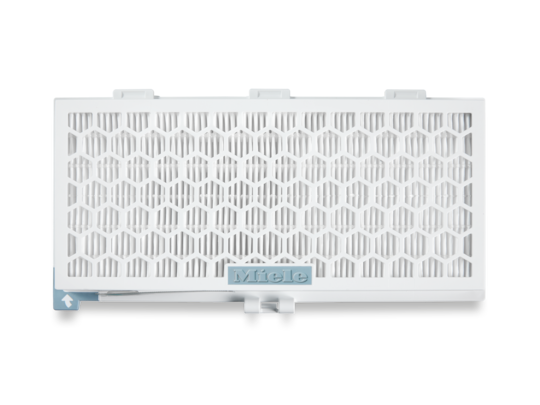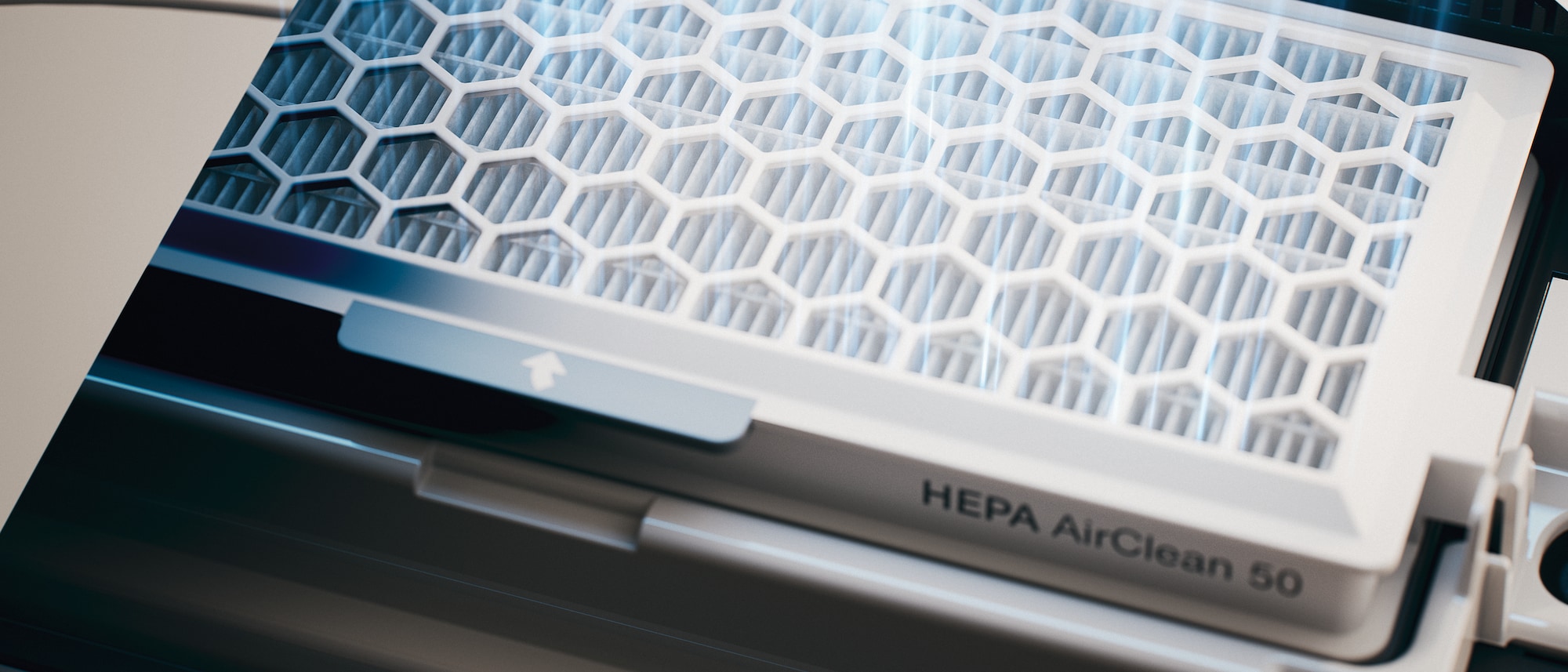
What is a Vacuum Cleaner HEPA Filter and Why is it Important
HEPA, which stands for High-Efficiency Particulate Air, is a type of filter that can trap a large amount of very small particles that other vacuum cleaners would simply recirculate back into the air of your home.
This article delves into what sets HEPA filters apart from standard vacuum cleaner filters, the specifics of Miele vacuum cleaners with HEPA filters, and how these filters function. Additionally, we will cover when to replace a HEPA filter and answer some frequently asked questions.
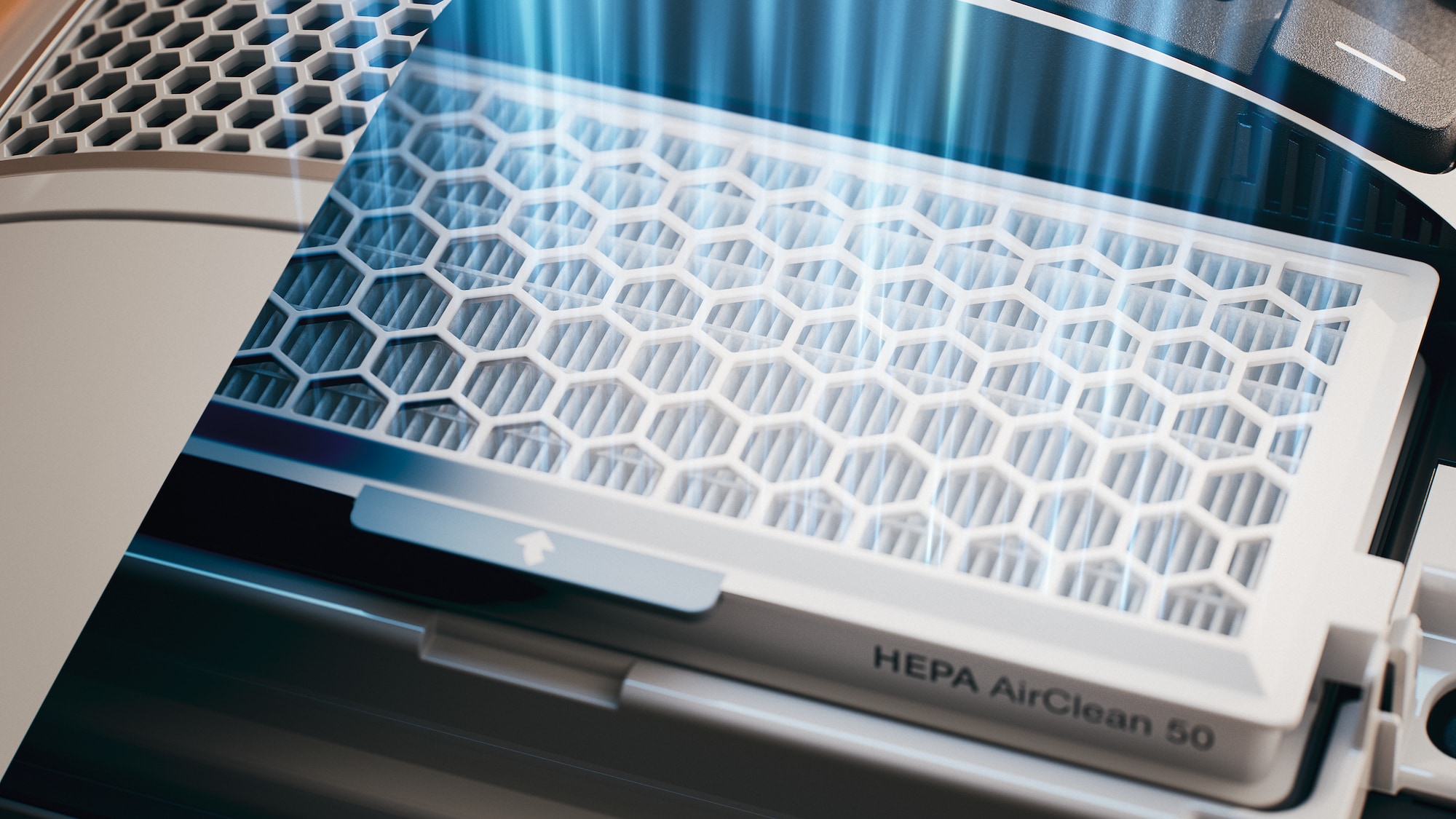
Understanding HEPA Filters vs. Standard Vacuum Cleaner Filters
What is a HEPA Filter?
A HEPA filter is a special type of filter that captures extremely small particles and prevents them from entering a vacuum cleaner’s bag or cylinder.
HEPA filters are designed to remove at least 99.97%* of airborne particles that are 0.3 microns or larger. This includes a wide range of particles such as dust mites, mold spores, pet dander, and pollen.
The ability of HEPA filters to capture such a high percentage of these tiny particles makes them ideal for allergy sufferers and those looking to improve indoor air quality.
Standard Vacuum Cleaner Filters
Standard vacuum cleaner filters, while effective at capturing larger debris, do not have the same level of efficiency as HEPA filters when it comes to capturing smaller particles. Standard filters can trap dust and dirt, but they may allow smaller particles to pass through and be released back into the air when the vacuum cleaner is operated or emptied / the bag is changed.
Key Differences
The primary difference between HEPA filters and standard filters is the level of filtration. HEPA filters provide superior filtration by capturing microscopic particles, whereas standard filters are less efficient and may not adequately capture allergens and other fine particles. This makes HEPA filters a preferred choice for those with allergies or respiratory issues.
How Does a HEPA Filter Work?
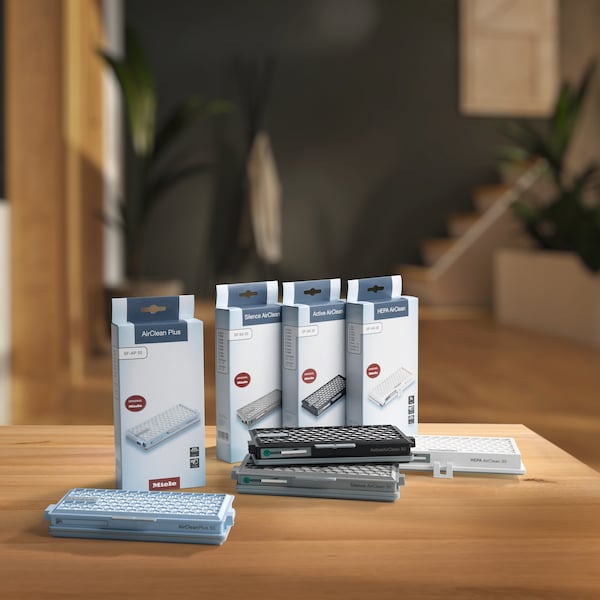
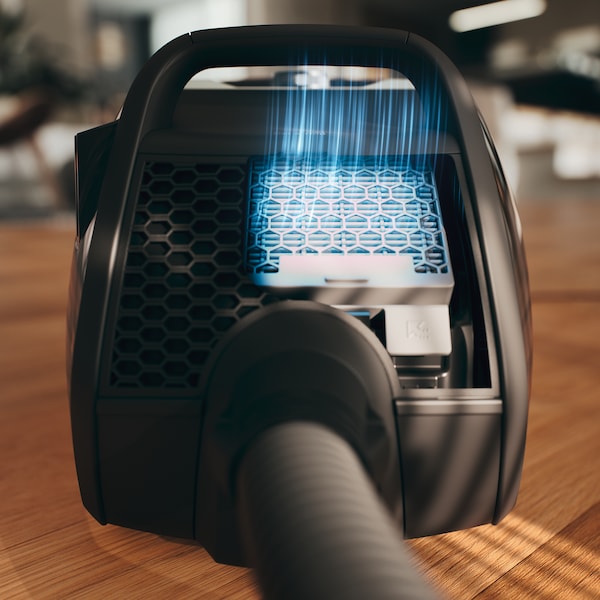
Filtration Process
HEPA filters work through a combination of three mechanisms: interception, impaction, and diffusion:
Interception occurs when particles following a stream of air come within one radius of a fiber and adhere to it.
Impaction is when larger particles are unable to avoid fibers by following the curving contours of the air stream and are forced to embed in one of them directly.
Diffusion happens with the smallest particles, which collide with gas molecules and are impeded and diffused, causing them to be captured by fibers through both interception and impaction.
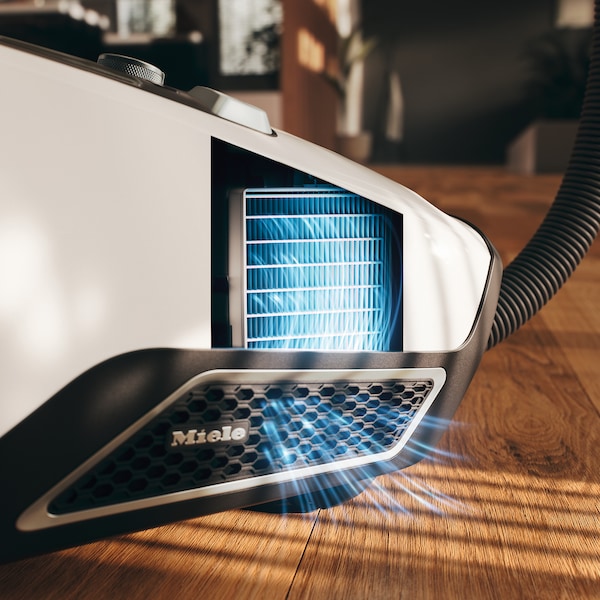
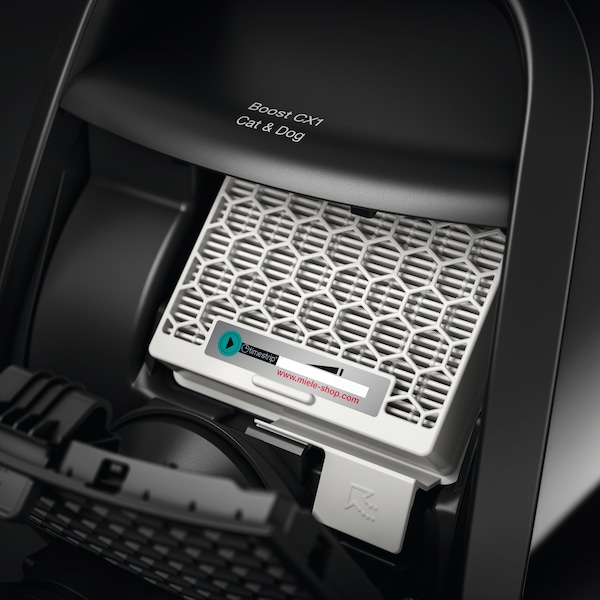
Multi-Layer Construction
A HEPA filter typically consists of a mat of randomly arranged fibers. The fibers are usually composed of fiberglass and have diameters between 0.5 and 2.0 micrometers.
The air space between HEPA filter fibers is typically much greater than 0.3 µm, so the HEPA filters are designed to target much smaller pollutants and particles.
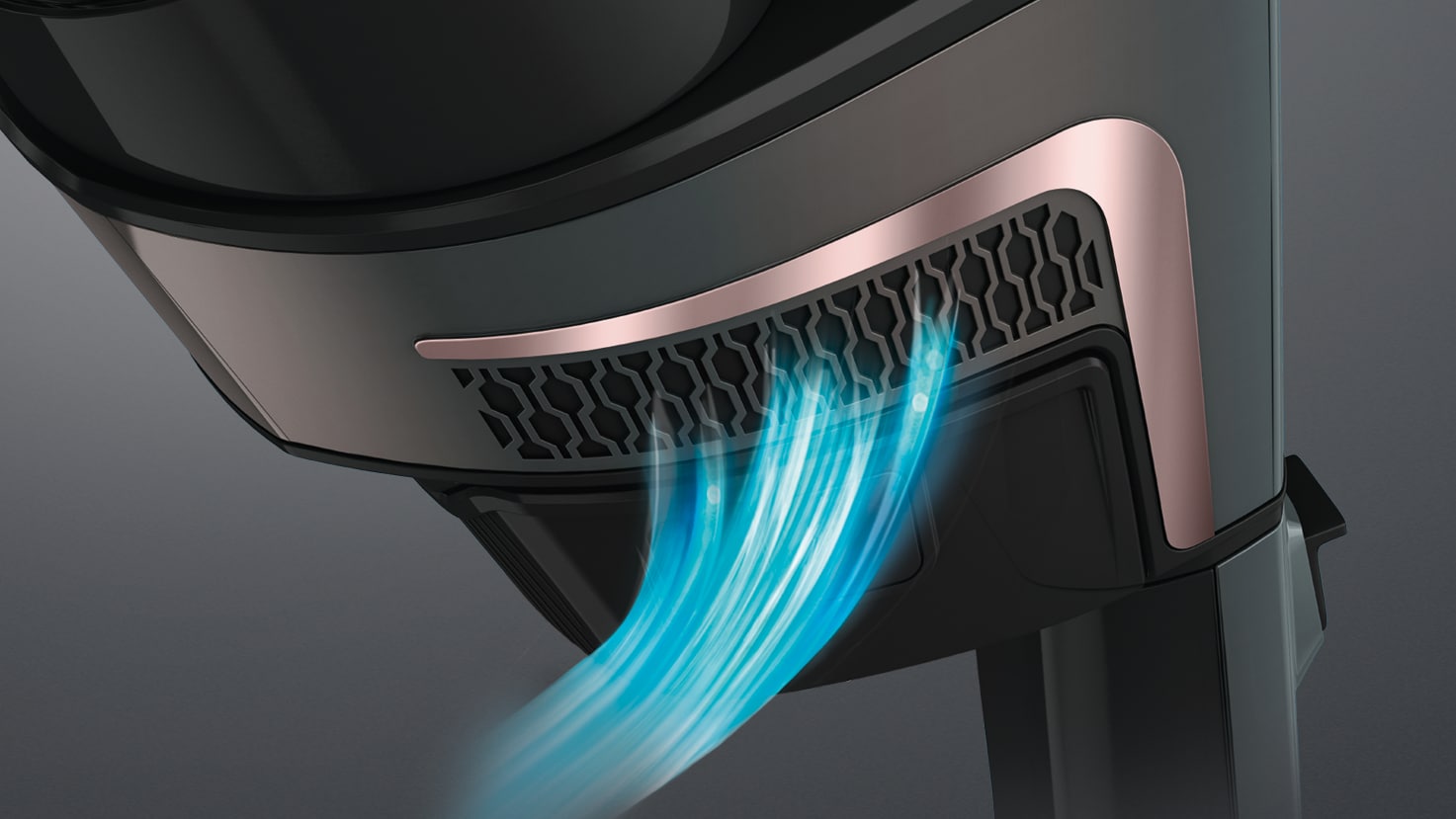
When Do You Need to Replace a HEPA Filter?
Frequency of Replacement
The frequency of replacing a HEPA filter depends on the usage of the vacuum cleaner and the environment in which it is used. Generally, it is recommended to replace a HEPA filter every 6 to 12 months to maintain optimal performance. However, if the vacuum is used frequently or in a particularly dusty environment, it may be necessary to replace the filter more often.
At Miele, we stock replacement HEPA filters for all the models that feature them, plus we may be able to provide filters for older or discontinued vacuum cleaners with HEPA filters.
Signs a Replacement is Needed
Indicators that your HEPA filter needs replacing include reduced suction power, unusual odors, and visible dust or dirt around the filter area. It's essential to check the filter regularly and replace it as needed to ensure the vacuum cleaner operates efficiently.
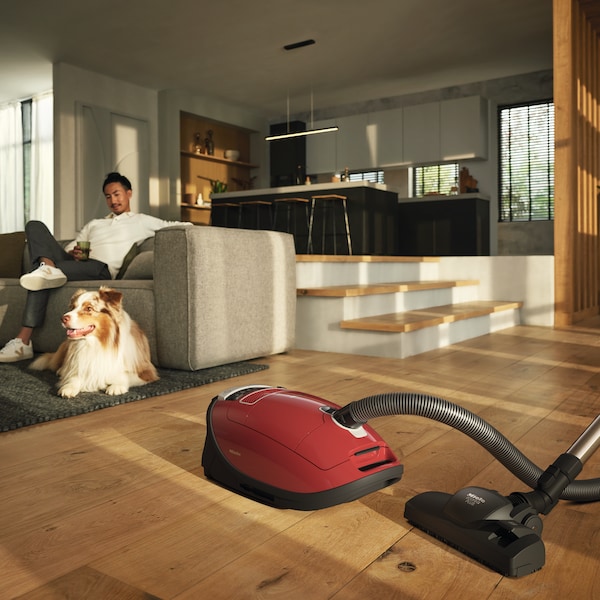
Recommended Miele Vacuum Cleaners with HEPA Filters
Miele is renowned for its premium vacuum cleaners, many of which feature HEPA filters to help reduce allergens and improve indoor air quality. From bagged to bagless, cordless to cylinder models, selected vacuums offer HEPA filtration to ensure your home stays hygienically clean.
Cordless stick vacuum cleaner
For those who prefer cordless convenience, many Miele stick vacuum models are fitted with a HEPA filter. These lightweight, manoeuvrable cleaners offer flexibility without compromising on filtration performance. The HEPA Lifetime Filter makes these models ideal for maintaining cleaner air in busy households for years to come.
Bagless cylinder vacuum cleaners
The Miele bagless cylinder vacuum range offers outstanding performance, particularly for allergy sufferers. Models in the Miele Blizzard series are designed with both hygiene and ease in mind. They feature an 890 W motor with Vortex Technology for powerful dust separation, paired with a HEPA Lifetime Filter for exceptional air cleanliness.
User-friendly details include an ergonomic handle, a full set of accessories, and Miele’s ComfortClean system, which automatically cleans the fine dust filter for lasting performance.
The more compact Miele Boost bagless cylinder vacuum series delivers the same level of filtration in a space-saving design; ideal for smaller homes or flats.
Bagged cylinder vacuum cleaners
Miele’s bagged cylinder vacuum cleaners also include models specifically designed to support those with allergies. With HEPA filtration built in, they offer excellent dust retention and improved air hygiene; perfect for homes where clean air matters most.
- 1 Free delivery over £50, otherwise £3.99. Applies to vacuum cleaners, cleaning products and accessories.
- Subject to technical changes; no liability accepted for the accuracy of the information given
Conclusion
HEPA filters play a crucial role in improving indoor air quality by capturing a high percentage of small particles that other filters might miss. Miele offers a range of vacuum cleaners equipped with HEPA filters, catering to different needs and preferences.
Understanding how HEPA filters work, when to replace them, and their benefits can help you make an informed decision for a cleaner and healthier home environment. For more details and to explore our range of HEPA filter vacuum cleaners, visit our vacuum bags and filters page.
By choosing a Miele vacuum cleaner with a HEPA filter, you invest in a product that prioritizes both cleanliness and air quality, making your home a healthier place to live.
FAQs
A HEPA filter is recommended for households with allergy sufferers, pets, or those looking to maintain high indoor air quality. It's particularly beneficial in homes where there is a need to capture fine particles such as dust mites, pollen, and pet dander.
Most HEPA filters are designed to be replaced rather than cleaned. Some HEPA filters are washable, but this depends on the manufacturer's instructions. Washing a non-washable HEPA filter can damage it and reduce its efficiency. Always refer to the vacuum cleaner's manual for guidance on filter maintenance.
Some vacuum cleaners come with lifetime HEPA filters that do not need to be replaced regularly. For instance, the Miele Triflex HX2 Pro features a HEPA Lifetime Filter that provides long-term filtration without the need for frequent replacement. However, these filters still need occasional maintenance to ensure they remain effective, so choosing a Miele service plan for your Triflex model is highly recommended.
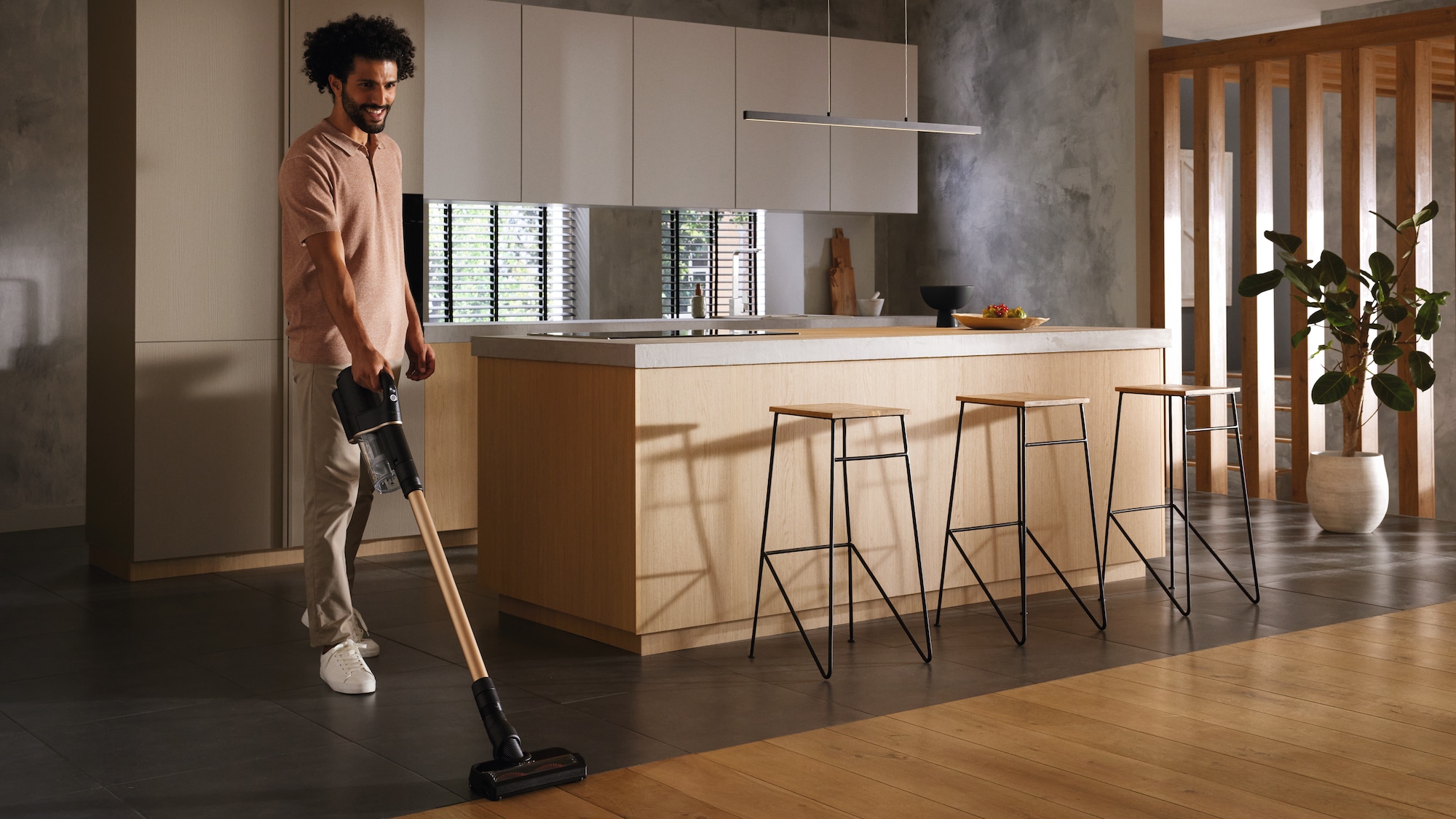
Everything Vacuums
Whether you’re looking for information to help you find your perfect Miele vacuum cleaner, want to learn more about the innovative technologies that power them, or discover tips to maintain the Miele model you already own, you’ve come to the right place.
Footnotes:
* According to IEC 62885-2:2021
